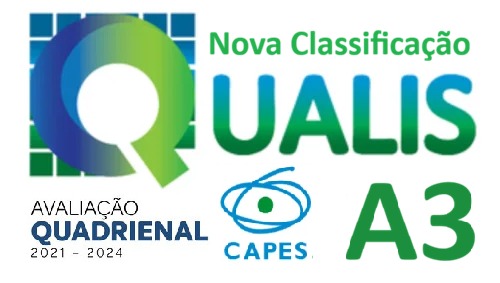An Analysis of Brazil's Situation in the The Public Attitudes toward Clean Energy (PACE) Index in regard to Nuclear Energy
DOI:
https://doi.org/10.15392/2319-0612.2024.2522Keywords:
The Public Attitudes toward Clean Energy (PACE) Index, nuclear energy , BrazilAbstract
Research on public perception of science and technology has become a relevant practice throughout the world, and public opinion and political support for nuclear technology are local and variable across countries. The Public Attitudes toward Clean Energy (PACE) Index is the world’s largest publicly released international study on what people think about nuclear energy. Surveying is conducted by Savanta, and commissioned and analysed by Radiant Energy Group, the PACE Index was set up to track support/opposition for clean energy sources, what drives those attitudes, and how institutions can better cater to what the public wants. This paper aimed analysed the results of the PACE Index in order to evaluate the public's position in the world and in Brazil regarding the use of nuclear energy. Overall, it can be said that across the 20 countries surveyed, 46% of respondents support the use of nuclear energy and the preference for nuclear energy is larger than for onshore wind, biomass from trees, or gas with carbon capture and storage. Specifically, with regard to Brazil, it can be said that the public opposition to nuclear energy exceeds support, Reliability, Health & Safety and Climate Change are seen as an important energy attribute and the younger demographics are most supportive. In this sense, it is understood that through educational actions, scientific dissemination processes and discussions with society on the subject can help the process of public acceptance of nuclear energy.
Downloads
References
CGEE. Centro de Gestão e Estudos Estratégicos. Ministério da Ciência, Tecnologia e Inovação (MCTI). Percepcão Pública da C&T no Brasil. 2019. Disponível em: https://www.cgee.org.br/web/percepcao. Acesso em: 17/06/2024.
RAZUCK, F. B.; RAZUCK, R. C. S. R. A relação entre popularização da ciência e a abordagem CTS: a importância para a educação científica. Cadernos de Pós-graduação, São Paulo, v. 23, n. 1, p. 299-306, jan./jun., 2024. DOI: https://doi.org/10.5585/cpg.v23n1.24375
RAZUCK, F. B. ; RAZUCK, R. C. S. R. A importância da Filosofia no ensino de ciências. Dialogia, 2011. DOI: https://doi.org/10.5585/dialogiaN14.2734
ROMANINI, V. ; CALDAS, P. Opinião pública e tecnologia: os impactos do Big Data nos estudos de opinião pública sob o olhar do pragmatismo. Trans/Form/Ação, Marília, v. 44, n. 4, p. 375-398, Out./Dez., 2021. DOI: https://doi.org/10.1590/0101-3173.2021.v44n4.30.p375
LEVY, D. S.; PASSOS, I. S. Education and communication to increase public understanding of nuclear technology peaceful uses. International Joint Conference RADIO, 2014. DOI: https://doi.org/10.15392/bjrs.v3i1A.85
AYLLÓN, R. M.; CASTRO, A. A. ; ROMERO, F. C.; , LEITE, L. O. C. ; FARIAS, L. A. The Neglected Role of Education in Brazilian Research Regarding Nuclear Theme versus Scientific and Technological Knowledge, Perception and Risk Communication. An. Acad. Bras. Ciênc., 94 (1), 2022. DOI: https://doi.org/10.1590/0001-3765202220200942
PACE. Public Attitudes toward Clean Energy 2023 - Public Attitudes toward Clean Energy 2023 - Nuclear. Radiant Energy Group, 2023. Disponível em: https://www.radiantenergygroup.com. Acesso em: 17/06/2024.
Downloads
Published
Issue
Section
Categories
License
Copyright (c) 2025 Fernando Barcellos Razuck

This work is licensed under a Creative Commons Attribution 4.0 International License.
Licensing: The BJRS articles are licensed under a Creative Commons Attribution 4.0 International License, which permits use, sharing, adaptation, distribution and reproduction in any medium or format, as long as you give appropriate credit to the original author(s) and the source, provide a link to the Creative Commons license, and indicate if changes were made. The images or other third party material in this article are included in the article’s Creative Commons license, unless indicated otherwise in a credit line to the material. If material is not included in the article’s Creative Commons license and your intended use is not permitted by statutory regulation or exceeds the permitted use, you will need to obtain permission directly from the copyright holder. To view a copy of this license, visit http://creativecommons.org/licenses/by/4.0/



























